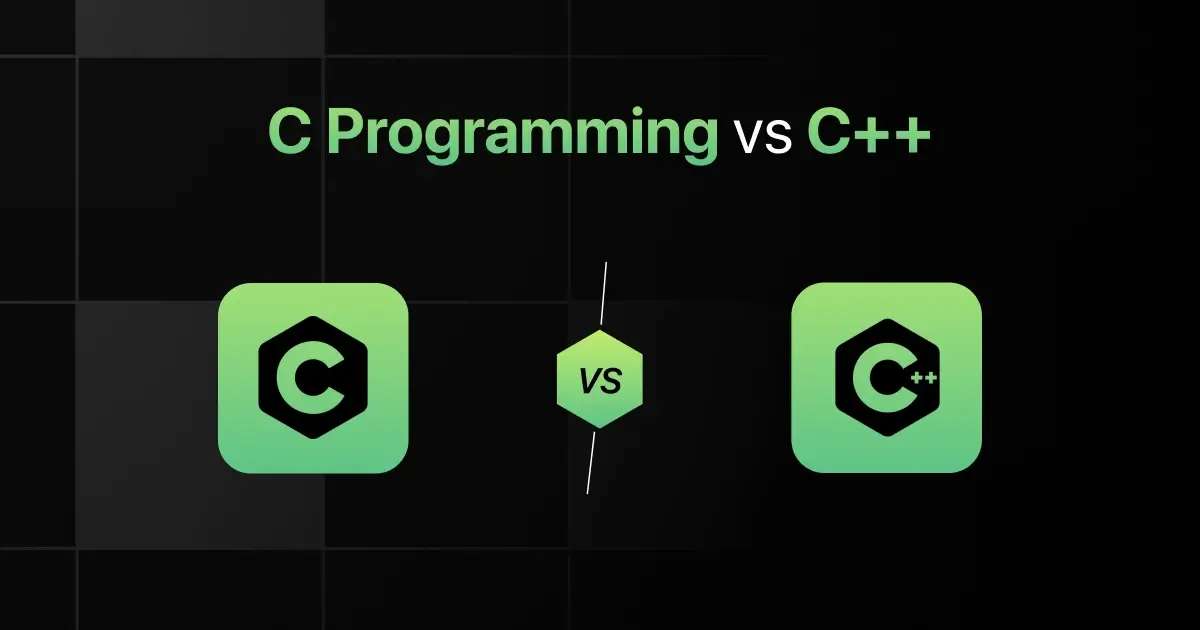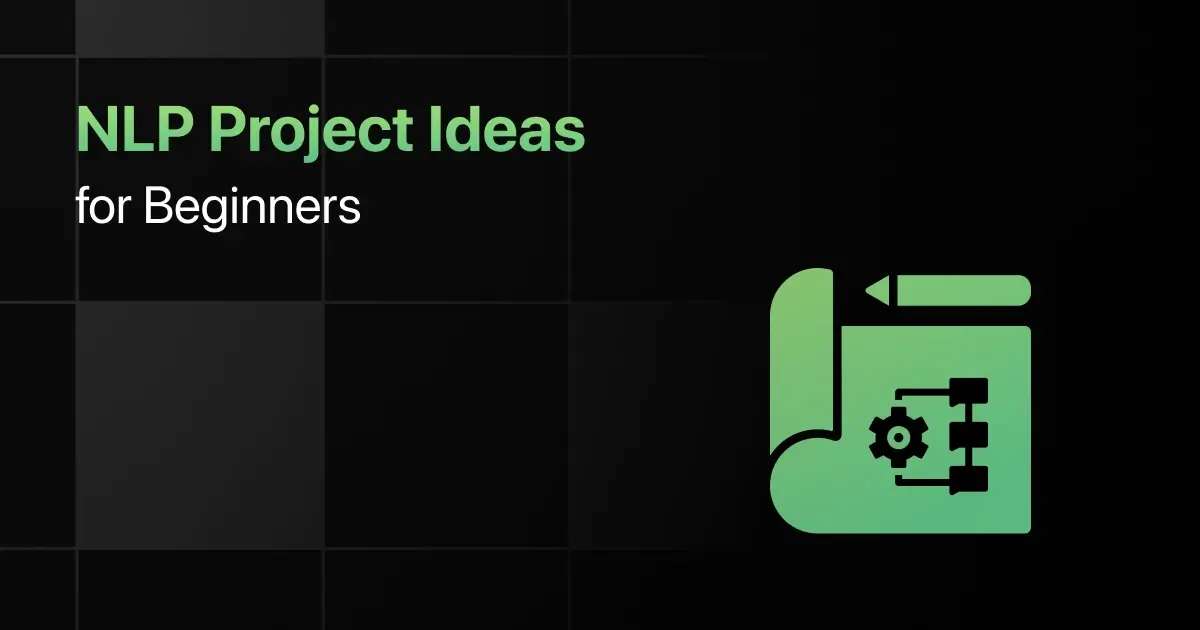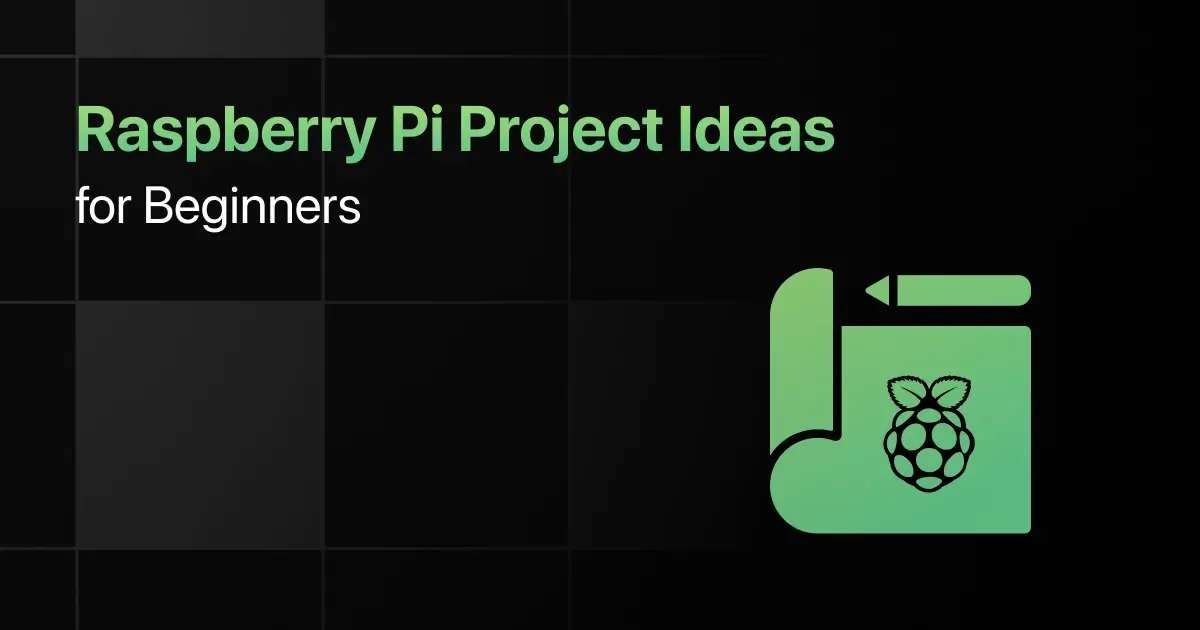C vs C++: Key Differences

When comparing C and C++, it’s important to look at what sets them apart. The discussion about C vs C++ is common among programmers deciding which language to use for their projects.
The question of C vs C++ which is better or C vs C++ which is best? depends on what you need for your specific project.
In this article let’s know the differences between C vs C++.
C vs C++: Understanding the Key Differences
To analyze C vs C++, it’s important to understand their design philosophy and runtime environments.
The key difference between C and C++ is that C is designed for procedural programming, making it ideal for applications where system-level resources, such as embedded systems, must be managed tightly. On the other hand, C++ builds upon C by adding support for object-oriented programming and features for generic programming.
The following are other major differences between C and C++:
| S. No. | Parameters | C Programming | C++ Programming |
|---|---|---|---|
| 1 | Developed By | Dennis Ritchie at AT&T Bell Labs | Bjarne Stroustrup at Bell Labs |
| 2 | Release Year | 1972 | 1985 |
| 3 | Paradigm | Procedural | Multi-paradigm (procedural, object-oriented, generic) |
| 4 | Syntax | Simple and straightforward | Complex, supports OOP and templates |
| 5 | Performance | Generally faster due to simplicity | Slightly slower, more features |
| 6 | Applications and Use Cases | Systems programming, embedded systems | Systems/software applications, game development |
| 7 | Learning Curve | Easier, fewer features to master | Steeper, due to OOP and standard libraries |
| 8 | Libraries and Frameworks | Standard C library | Standard Template Library (STL) and others |
| 9 | Platform Independence | Highly portable across platforms | Portable, but some features depend on the compiler |
| 10 | Concurrency and Multithreading | Libraries like POSIX threads | Built-in support from C++11 onwards |
| 11 | Tooling and IDE Support | A wide range of tools and IDEs | Extensive tools and IDE support. |
| 12 | Memory Management | Manual memory management | Manual with RAII, smart pointers |
| 13 | Error Handling | Basic error handling with errno | More sophisticated with exceptions |
| 14 | Security | Minimal built-in security features | More features like type safety, exceptions |
| 15 | Scalability | Scalable with careful design | More naturally scalable with OOP features |
| 16 | Key Features | Function-oriented, low-level operations | Class-based, OOP, templates, RAII |
| 17 | Integration with Other Technologies | Limited compared to C++ | Extensive integration capabilities with APIs, libraries |
| 18 | Community and Support | Strong, established | Very large and active, especially in game and application development |
| 19 | Job Opportunities | Steady in systems and application areas | Broad, from systems to application software |
| 20 | Future Prospects | Stable but limited growth | Continues to grow, especially in systems and complex applications |
C vs C++: Which One to Choose?
Choosing between C and C++ can be challenging, but by understanding their distinct advantages, you can make an informed decision.
Choose C If:
- You are aiming for roles such as embedded systems engineer, system software developer, or hardware interface programmer, primarily in industries like telecommunications, embedded systems, and hardware.
- You require minimalistic tools that offer close-to-hardware functionalities, focusing more on direct system manipulation and performance.
- You prioritize a programming language that excels in execution speed, optimized memory usage, and overall system efficiency, especially in systems where resources are limited.
- You seek a language that ensures wide compatibility, from microcontrollers to desktop operating systems, due to its ability to interact directly with hardware and low-level system components.
- You work on projects that require high-performance computing, real-time systems, or the development of compilers and operating systems where direct hardware interaction is crucial.
Choose C++ If:
- You are looking to work as a software developer, game developer, or in system architecture design, particularly within industries like video game design, real-time simulation, and software development.
- You are interested in a language with an extensive range of libraries and frameworks like Boost and Qt, supporting complex graphical applications and real-time simulation.
- You need a language known for its robust performance capabilities, capable of handling complex object-oriented applications with significant memory and process management.
- You require a language versatile enough to be used on multiple platforms including desktops, servers, and large systems, benefiting from C++’s object-oriented features and its vast standard library.
- You focus on developing complex systems such as desktop applications, AAA video games, or simulation software where advanced object-oriented programming is beneficial.
Final Words
The main difference between C and C++ lies in their design and use. The purpose of understanding the C vs C++ difference is to choose the right tool for the job, depending on factors like the project’s size and how easy it is to maintain.
Explore More C Programming Resources
- C Programming Learning Websites
- C Programming Practice Websites
- C Programming YouTube Channels
- C Programming Project Ideas
- C Programming Apps
- C Programming IDEs
- C Programming MCQ
Explore More C++ Resources
Explore More Comparisons
FAQs
The key differences between C and C++ are:
- C is procedural, while C++ includes both procedural and object-oriented paradigms.
- C++ has a more extensive standard library, including support for containers like vectors and maps, which are not native to C.
- C++ provides features like constructors and destructors for automatic resource management, whereas C requires manual handling.
C is generally better for system-level programming and small, fast applications.
C is often slightly faster in execution because it has less abstraction and overhead.
The primary use cases of C and C++ are:
- C: Embedded systems, system programming, operating systems, and resource-constrained applications.
- C++: Software engineering, game development, real-time systems, high-performance applications.
C is generally easy to learn for beginners due to its simpler syntax and smaller set of features.
Yes, both C and C++ can be run on different platforms
Yes, while not as common for high-level mobile app development, C and C++ can be used for performance-intensive parts of mobile apps.
The job prospects for both C and C++ developers are strong. C developers are in demand in areas such as embedded systems and low-level hardware development. C++ developers have broad opportunities in game development, and system/application software.
Related Posts



Golang Interview Questions
Are you preparing for your first Golang interview and wondering what questions you might face? Understanding the key Golang interview questions …
Warning: Undefined variable $post_id in /var/www/wordpress/wp-content/themes/placementpreparation/template-parts/popup-zenlite.php on line 1050









